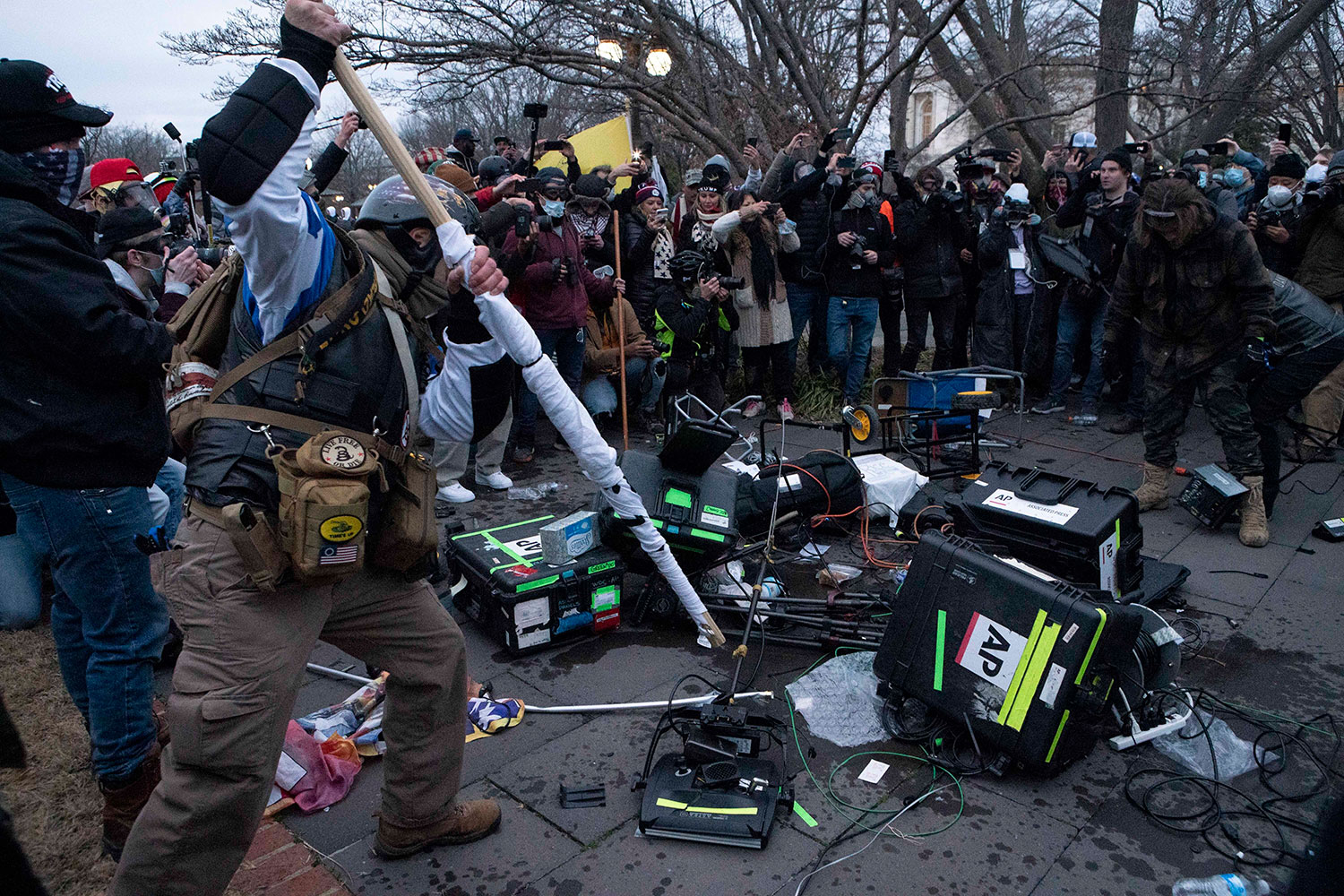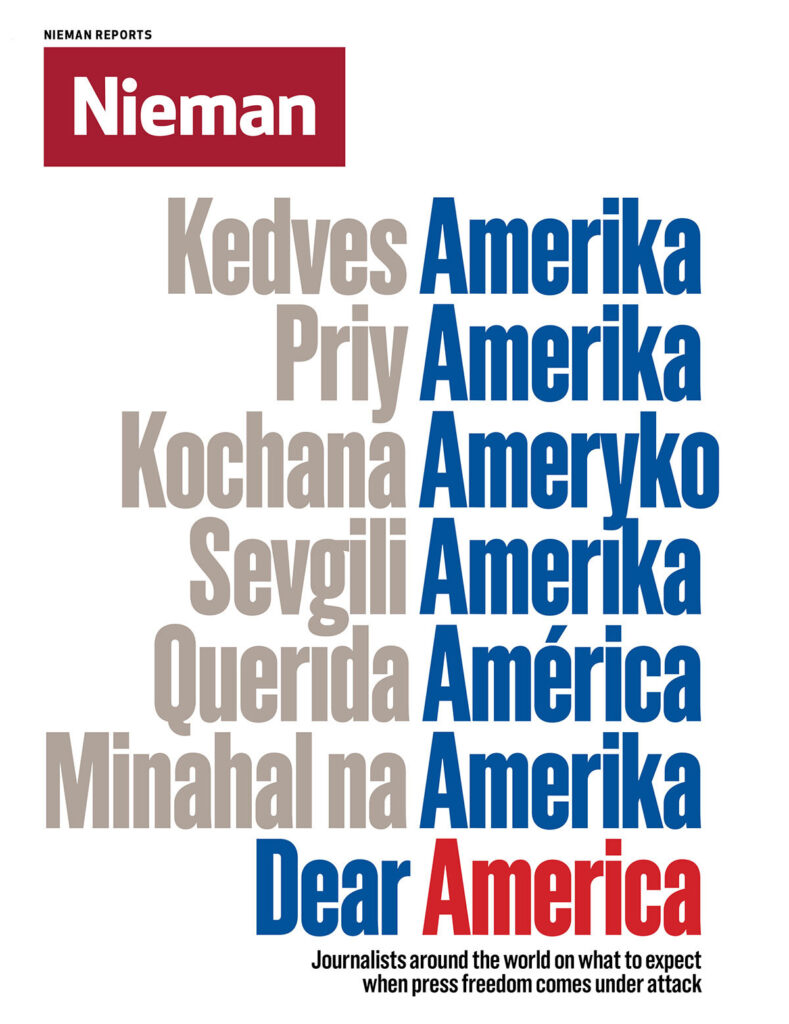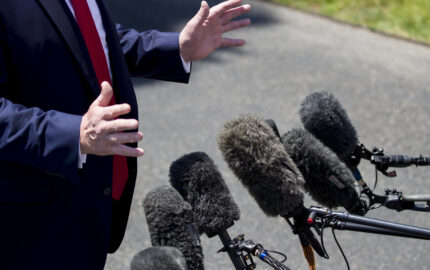International journalists are hearing echoes. From countries around the world that have witnessed the rise of autocratic and populist leaders, they are watching the U.S. and warning of a characteristic of wounded democracies everywhere: an endangered free press.
When Donald Trump sued CBS News for $10 billion over its editing of a Kamala Harris interview, some viewed it as just another tantrum. When he threatened to revoke broadcast licenses for critical coverage, we were told it was beyond a president’s power. And when the president-elect’s insults escalated from cries of “fake news” to violent provocations, his defenders said not to take him literally.
But each of these developments and others are warning signs to those journalists who saw the improbable become reality in their countries as democratic norms were trampled.
“American colleagues, prepare for the worst,” writes Glenda Gloria, editor of Rappler, a news site in the Philippines whose staff endured years of personal attack and legal torment from the Rodrigo Duterte administration. “If it doesn’t happen, you’ll be happy to be proven wrong. If it happens, it could happen fast.”
International journalists have long come to the U.S. and the Nieman Foundation seeking respite and a path out of repressive conditions for journalism. With humility, we asked some of these journalists and others in weakened democracies to tell us how they now view conditions in the U.S. and what advice they would offer their American colleagues. Some work in countries whose authoritarian leaders Trump has praised, including Hungarian Prime Minister Viktor Orbán, Turkish President Recep Tayyip Erdogan, and Indian Prime Minister Narendra Modi.
The responses, collected here, serve not as predictions but as cautionary tales and a plea to take heed
The responses, collected here, serve not as predictions but as cautionary tales and a plea to take heed. It is “death-by-a-thousand-cuts of press freedom that I would advise my American journalist colleagues to watch out for,” writes Turkish journalist Gülsin Harman.
Trump’s lawsuit against CBS may seem frivolous and doomed, but government leaders elsewhere know they are a costly and debilitating burden to news organizations, some of which have shut down under the weight of the expense. Trump’s evolving proclamations about the press have included threats to jail reporters who won’t identify confidential sources. And at a Pennsylvania rally during the final days of the presidential campaign, he gestured toward the press pen and said, “To get me, somebody would have to shoot through the fake news. And I don’t mind that so much.” These sound familiar alarms to journalists whose governments routinely imprison reporters and tolerate, or commit, violence against them with impunity.
“Dear American colleagues, do not have any illusions,” writes Bartosz Wieliński, deputy editor of Poland’s Gazeta Wyborcza. “If an autocrat or dictator announces something, sooner or later they will act on it.”
Six years ago, I visited Gazeta Wyborcza, a newspaper birthed during the historic anti-authoritarian Solidarity movement. Journalists there despaired. The paper was suffering the attacks of the newly elected Law and Justice party, worn down by lawsuits and government pressure on its advertisers and vendors. Its financial health, like the country’s hard-won democracy, was deteriorating, conditions that would endure until new elections.
I wrote about them at the time, not imagining the lessons of their experience would come back as counsel to my own country.
“It was easier ... to stand up to authoritarian authorities knowing we were supported by friends abroad,” writes Wieliński. “Now, we are here to support you.”
Hungary
Our only source of power is our audience
By András Pethő
Let me start with the bad news.
Yes, you should brace yourself for the worst. History has taught us that even centuries-old institutions can crumble under the weight of political forces that are ruthless and have sufficient resources to carry out their plans. Just ask the churches, universities, businesses, and civil society organizations how well they did under communist dictatorships in Eastern Europe after World War II.
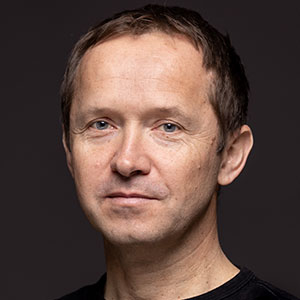
Hungary, where I run the investigative reporting nonprofit Direkt36, is still a much freer place now than it was during those dark times. But if the 14-year (and still counting) rule of Viktor Orbán can provide any guidance on what is waiting for independent journalsts under Donald Trump’s second term, you can expect increasingly aggressive propaganda campaigns against you, attacks on your business operations, and maybe even some spying on you and your sources.
So, arm yourselves with the best lawyers who can protect you against politically motivated legal attacks and can challenge unjust regulations. Increase your physical and digital security. Maybe even team up with your competitors to make a case to the people that independent, fact-based journalism is a public service.
You should also realize that what you are facing now is not a uniquely American problem. Many of your colleagues around the world have been struggling with these challenges for years. Reach out to them and ask them about their experience. Maybe they have useful advice on what to do and what not to do, the latter of which can be equally important.
This brings us to the good news.
In Hungary we have gone through all the challenges I mentioned (propaganda, business pressures, surveillance), and we’re still alive.
My colleagues and I launched Direkt36 nearly 10 years ago, after we had to leave our previous workplace, one of Hungary’s most popular digital news sites, when it came under pressure from the government.
The first few years were especially hard, when we had to figure out the business side of our operations and establish ourselves as a new outlet. But now we have an organization that has been growing steadily, attracting young talent, and producing stories that reach hundreds of thousands (a big number in Hungary) and often put the government on the defensive.
Whatever resilience we have is due mainly to two reasons. Since advertisers and investors often have political agendas, we rely on a membership program as our main source of revenue. And we are an active member of the growing international investigative journalism community to which we can always turn for help, whether it is about pursuing a cross-border story or asking for technological or legal assistance.
In Hungary we have gone through all the challenges I mentioned (propaganda, business pressures, surveillance), and we’re still alive
We are not alone. When another popular news site, Index, was taken over by pro-government forces four years ago, its whole staff resigned and set up another outlet, Telex, which has quickly become one of the most influential news sources in the country (full disclosure: they are our publishing partners).
Another example is Partizán, an outlet that started as a YouTube channel just a few years ago. Now, it practically functions as the public service broadcaster of Hungary, streaming a mix of serious political coverage and entertainment to audiences whose size rivals that of traditional television channels. (The official public broadcaster has been turned into a mouthpiece of the government.)
If there has been one lesson during this journey, it is that nothing really matters other than the audience. I know, you’ve heard this a million times already. But we all should continue to think about it deeply. The model of college-educated journalists writing news for a college-educated audience clearly doesn’t work as a business model (at least not for everyone). Neither does it fulfill the role journalism should play in a democracy.
Our only source of power is our audience. The bigger and more diverse it is, the bigger our defense against any autocrat who wants to crush us.
András Pethő, NF ’20, is co-founder and executive director of Direkt36, an investigative journalism center in Hungary.
Philippines
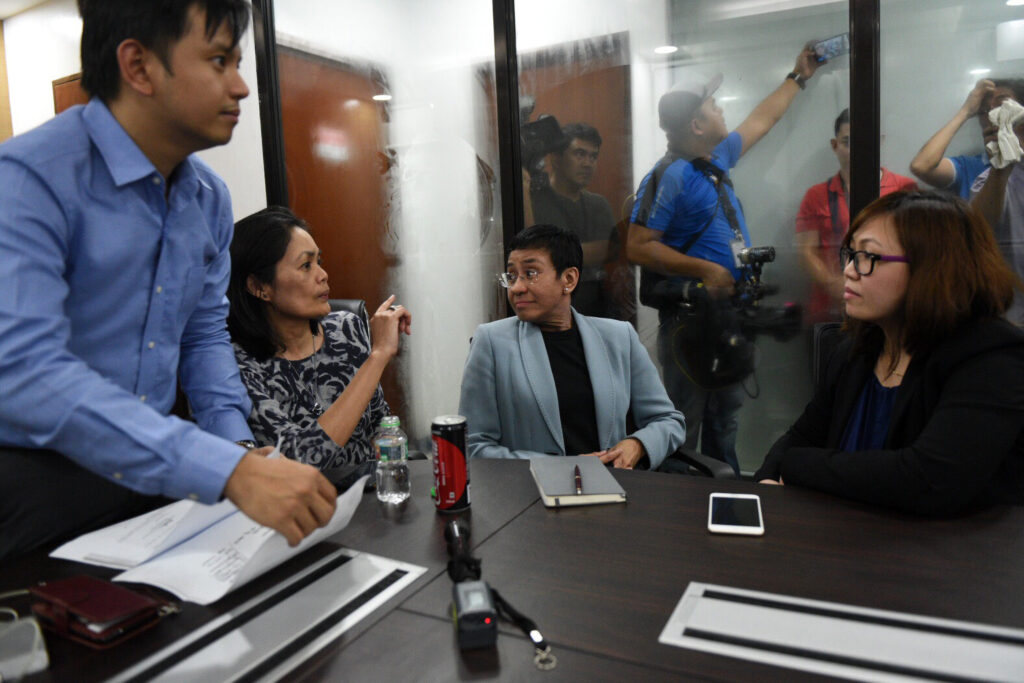
Yield an inch to a tyrant, and he will want more
By Glenda M. Gloria
After the foul-mouthed mayor from southern Philippines, Rodrigo Duterte, won a landslide victory in the 2016 presidential election, not a few journalists dismissed forecasts of a coming Duterte storm. He could not possibly nationalize the death squad that he deployed against petty criminals in Davao City, they declared. He’s all drama but harmless, said reporters who have covered him for ages.
Duterte himself had warned Filipinos that they might not like what they saw if he won. In an interview with Rappler CEO Maria Ressa seven months before the election, he said: “When I said I’ll stop criminality, I’ll stop criminality. If I have to kill you, I’ll kill you. Personally.”

The Duterte regime did not only kill tens of thousands of Filipinos from 2016 to 2022, for which the ex-president is being investigated by the International Criminal Court. It also tried to kill newsrooms and succeeded in shutting down the country’s biggest and most powerful broadcasting network, ABS-CBN.
So, dear American colleagues, prepare for the worst. Drill it into your everyday operations. If it doesn’t happen, you’ll be happy to have been proven wrong. If it does happen, it could happen fast — like a volley of punches meant to mess with your heads before the final blow.
We’ve learned hard lessons from the Duterte years, four of which, I believe, are relevant no matter where or who you are.
‧ Yield not an inch. Fear for the business and the future makes “compromise” an attractive option to media owners and shareholders. How about a back-channel to government officials to reassure them we’re not the enemy, some say? Get real: what could an autocrat want that a self-respecting independent newsroom could give? Nothing. Don’t yield an inch, for he will want more.
‧ Keep it going. In our part of the world, big companies pulled ads, state prosecutors charged journalists and media owners in court, and tech-enabled influencers demonized us and funneled readers to propaganda channels. Where leaders see media shutdown as a messy option, they can choose a war of attrition. Stock up. Raise a legal and emergency fund outside your operations budget. Develop a revenue stream beyond the autocrat’s reach. And then keep going.
‧ Know your first line of defense. Journalists will not run away from a good fight, but they need to know the principles behind a battle plan. Walk them through the worst-case scenarios, raise the likelihood of belt-tightening and persistent attacks, tell them that they can quit and won’t be judged. Brief them on dangers to their security, and equip them with basic safety skills. Journalists are the fiercest, most tenacious species on earth. They will stay. And they will write the most compelling stories. Published last year, “Some People Need Killing,” by former Rappler investigative reporter Patricia Evangelista, has been read and praised by thousands of readers around the world, including Filipinos who had applauded Duterte’s bloody drug war.
‧ Hold the line with your communities. Your loyal readers have got your back, but they appreciate you doing more than just writing stories for them. Show up — at press freedom rallies, at forums on journalism and democracy, in conversations that try to make sense of what’s happening around you. In the face of tyranny and the digital manipulation of societies, there should be no line between journalism and activism, only a bridge. It’s called citizenship.
Whether in the Philippines or in Russia, crisis has brought out the best in journalism and in newsrooms. The 2021 Nobel Peace Prize acknowledged this. You seem to be even better-positioned to hold the line and turn Trump 2.0 into an opportunity.
Glenda M. Gloria, NF ’18, is co-founder and executive editor of the award-winning Philippines-based independent news site Rappler.
Peru
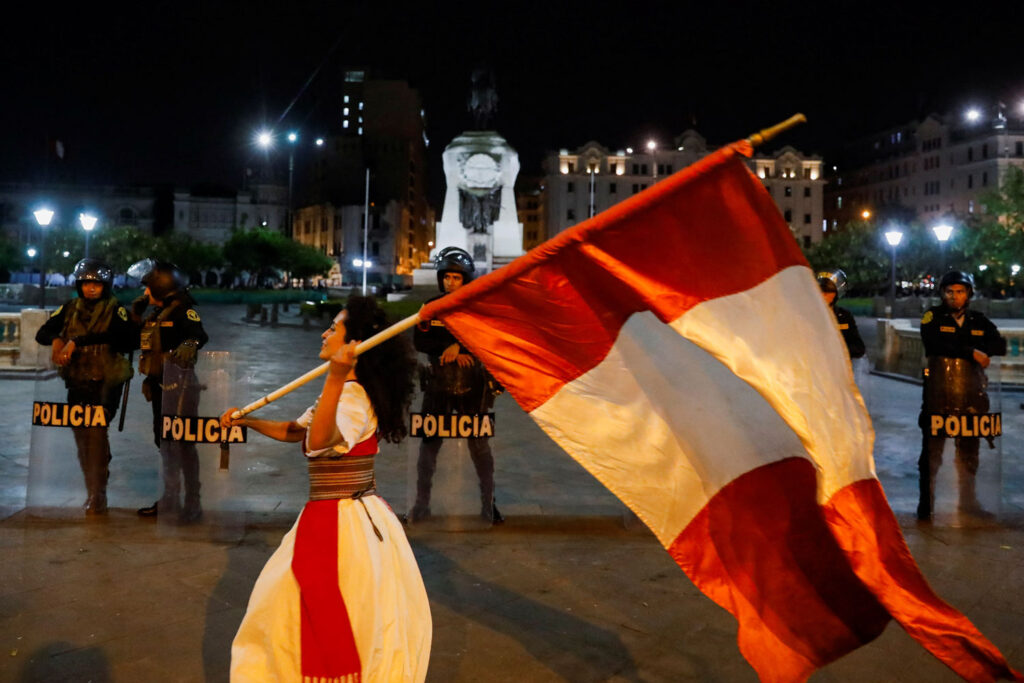
Prompt action to prevent early erosion of press freedom will be crucial
By Gustavo Gorriti
A fitting analogy for the day-after dread that some felt after Donald Trump’s election victory might be the single-sentence short story by Latin American writer Augusto Monterroso: “When he woke, the dinosaur was still there.”
Trump had already denounced the press as the “enemy of the people” during his first term as president. Now, for his second term, he has promised to exact revenge on independent journalists and media. Some cowed publishers offered a preview, before the election, of what can be expected later. Others will join in trying to find the best way to bend and kiss the ring.
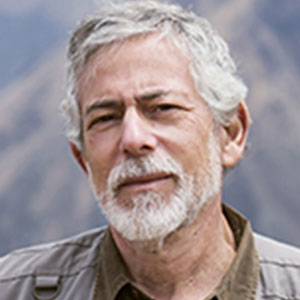
Those of us who live and work in countries with precarious democracies have lived, or continue to live, through the kind of travails American journalists might face if an unchecked Trump has his way. Those challenges could include the following:
‧ Investigative, or just in-depth journalism, will be targeted and countered with disinformation. There is nothing new about disinformation — the totalitarian regimes of the 20th century mastered it — but disinformation in the digital era can be massive. Lies upon lies can be published and spread by the thousands every day. To counter them, journalists must bring factual truth to light through reporting, double-checking and corroborating everything. It is an unequal fight in which only the more potent journalistic investigations will have a chance of prevailing by cutting through the torrents of lies.
‧ Journalists will be smeared, defamed, and harassed while often sued at the same time in corrupt or cowed courts. Hired mobs will beleaguer them at their offices and homes. Some accusations will be so insistently repeated from different sides that a number of people will end up believing them. Others will avoid meeting, or even being seen with, journalists, simply not to risk becoming a collateral target.
‧ Intense defamation and smear campaigns against journalists risk paving the way to physical attacks. That was very much the case before the murder of investigative reporter Daphne Caruana Galizia, who exposed government corruption in Malta. Other notoriously intense smear campaigns, like the one that targeted Maria Ressa in the Philippines, were countered by energetic campaigns of international solidarity, which probably prevented physical attacks but not all the other forms of harassment.
‧ This means that the journalistic quest for truth will require navigating swamps of lies, falsehoods, trumped-up legal accusations, and the danger of physical attack. The journalistic process, especially investigative journalism, must therefore change. When planning an investigation, it will be necessary to simultaneously plan how to defend that investigation, as well as the journalists conducting it. This is a complex endeavor, with many pitfalls along the way — part of a difficult, often unrewarding daily life.
This is a description of the reality faced by committed, stubborn journalists in several places around the world. Is it the certain future awaiting American journalism under Trump? Hope not. Needn’t be.
Prompt, energetic action to prevent early erosion of press freedom will be crucial. Journalism and defense of journalism should be integrated from the outset through all relevant avenues, particularly legal ones. A degree of activism, however alien to journalism in normal times of constitutional government, will be necessary.
Be strong-willed, eloquent, determined to expose truths with fearless energy, and great numbers of freedom-loving Americans will rally behind you. That is your great advantage. Throughout their history, Americans faced other dinosaurs — and prevailed. Do it again, only better. The world needs it.
Gustavo Gorriti, NF ’86, is the founder and director of IDL-Reporteros, a digital, nonprofit investigative publication in Peru.
Ghana
Despotic regimes can birth great journalism
By Manasseh Azure Awuni
On Oct. 28, 2024, U.S. Secretary of State Antony Blinken announced a policy to “restrict U.S. visas for any individual responsible for undermining democracy in Ghana.” The announcement came in advance of Ghana’s presidential and parliamentary elections, slated for Dec. 7.
I supported that policy against those who undermine democracy — including freedom of the press, one of democracy’s cardinal tenets — in Ghana. But a week after it was unveiled, Americans went to the polls and elected Donald Trump. His victory is a victory for impunity and sends the wrong signals to countries such as mine.
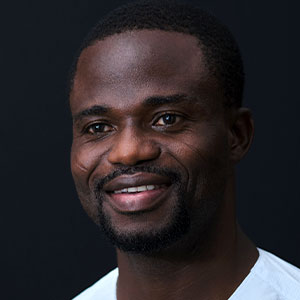
Before 2017, I practiced journalism in Ghana without fear. A new government then poisoned the media space with physical assault, arbitrary arrests, prosecutions, and murder. The perpetrators, mainly politicians and state security officials, went unpunished. I went into exile twice, drove with armed police escorts, and was compelled to take a break to preserve my mental health. And I was among the lucky journalists.
In the summer of 2018, Kennedy Ohene Agyapong, a ranking member of parliment, put a photograph of undercover investigative journalist Ahmed Hussein-Suale on a national TV station Agyapong owns, urging people to attack him.
Not long after, two gunmen shot and killed Hussein-Suale near his home. Nobody has been arrested or prosecuted for the slaying. Later, when Agyapong placed second in the presidential primaries of the governing party in 2023, some of his followers referred to him as Ghana’s Donald Trump. That’s how America’s bad example can be emulated elsewhere.
You do not light a lamp at night to identify a person you know well, a Ghanaian proverb goes. Americans, especially journalists, already know Trump, and can expect another tumultuous journey ahead. In these hard times, journalists can win if they proactively counter the new Trump administration’s anticipated playbook.
Accountability journalism is much harder in harsh conditions, but there’s no better time to marshal such forces.
The administration will put its jackhammer into the cracks that developed in media organizations such as the Los Angeles Times and The Washington Post in the weeks before the 2024 election, when both newspapers shocked readers by reversing their endorsement policies at the last minute and declining to endorse Kamala Harris, resulting in internal strife. As has happened in Ghana, politicians and Trump supporters will no doubt target specific journalists and media organizations for retribution and persecution. Journalists should not rule out a rise in attacks, including physical harm.
America’s media must, however, be careful to refuse to rise to some of Trump’s bait. Don’t relinquish your agenda-setting power to Trump. Cover him, but don’t allow him to mislead you with his unending antics and logorrhea. Be alive to your supreme responsibility to hold Trump and his administration accountable, and don’t forget the other stories that matter.
Accountability journalism is much harder in harsh conditions, but there’s no better time to marshal such forces than when a man immune to scandals and averse to accountability oversees the United States. Eternal vigilance is the price of liberty, but journalists must go beyond vigilance. They must aggressively push back against the boulders of oppression.
If tough times are noted for producing tough people, despotic regimes can birth great journalism.
Manasseh Azure Awuni, NF ’24, is an award-winning Ghanaian investigative journalist.
India
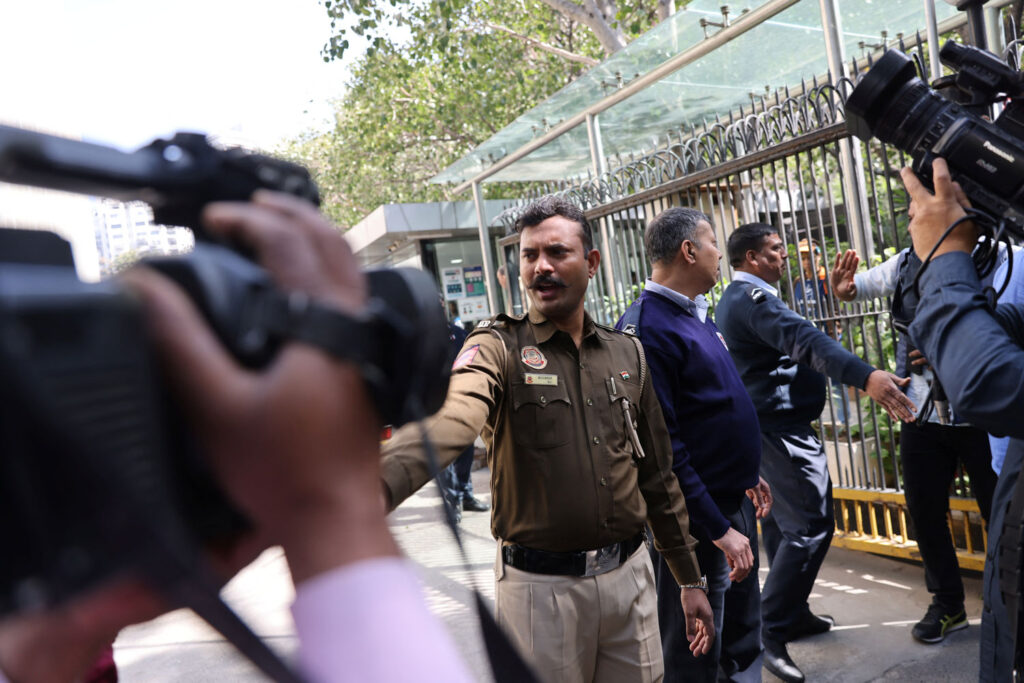
Stay strong, mentally and physically, for the fight ahead
By Vidya Krishnan
After 10 years of reporting in Narendra Modi’s India, Indian journalists know a thing or two about the kind of journalism that is done in faltering democracies. As Donald Trump’s “revenge tour” gets underway, all of it feels familiar to me watching from India. You are in for a fierce competition between sensationalists and propagandists, with fact-based, independent, clear-eyed journalism relegated to the sidelines.
When Modi came to power, announcing his hostility toward journalists back in 2014, it began with a handful of editors quitting or succumbing to pressure, with well-investigated stories being canceled, and a rise in vigilantism against reporters. Press conferences became rare.
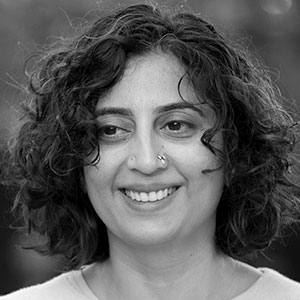
Today, we are used to newsrooms being raided and access to funding blocked. We are used to being called “presstitutes” and “anti-national” by Cabinet ministers, simply for doing our jobs. We are used to rape threats and death threats as reward for investigations done well. The precious little resources freelancers compete for have entirely dried up. All this has happened in front of our eyes over the last decade.
Then there is the question of prison — something that used to be a faraway concept, but that many of us are now confronting every day. The threat of imprisonment was an event that until a few years ago was as unimaginable as one’s own death — a reality that existed without having to be faced. Today, most of us journalists have lawyers who have been instructed on what’s to be done if or when the day comes.
On Oct. 3, 2023, for example, police in India’s capital, New Delhi, carried out early-morning raids at the homes of 46 journalists. Authorities seized their laptops and mobile phones, which was alarming in and of itself. But Modi’s administration — not one to take dissent lightly — also charged the journalists and the left-leaning online portal NewsClick under an antiterrorism law known as the Unlawful Activities Prevention Act. The editor and founder of the site, Prabir Purkayastha, was arrested on allegations that the portal had received Chinese funds and pursued an “anti-India agenda.” It would take almost eight months for the lawyers — who had to go all the way to the Supreme Court — to prove the arrest was illegal and get him released on bail.
It is incidents like this that contribute to India now being ranked 161st out of 180 countries in the World Press Freedom Index maintained by Reporters Without Borders, having fallen more than 20 places since Modi became prime minister in 2014.
As things go from alarming to unendurable, my role, as a journalist, is to repeat what those before me have repeated under these circumstances: continue the work of documenting a version of events that centers the experiences of those with the least power. All our work before this time feels like it was just practice — preparing us to report on hostile governments, to piece together information as it grows increasingly difficult to get people on the record, and to do it all while being targeted for our reporting.
So, to my American colleagues in the press I say: There are many things you can do to prepare. Be meticulous, assuming that everything you report will end up in court. Practice digital hygiene — use VPNs and encrypted software. Memorize your emergency contacts and have an emergency protocol in place. And start a legal fund.
But I also have some advice that is not entirely about journalism: take up a sport, start running, or do yoga — because we all need a sound mind and a healthy body if we are to outlast our oppressors.
Vidya Krishnan, NF ’21, is an investigative journalist and author based in India.
Poland
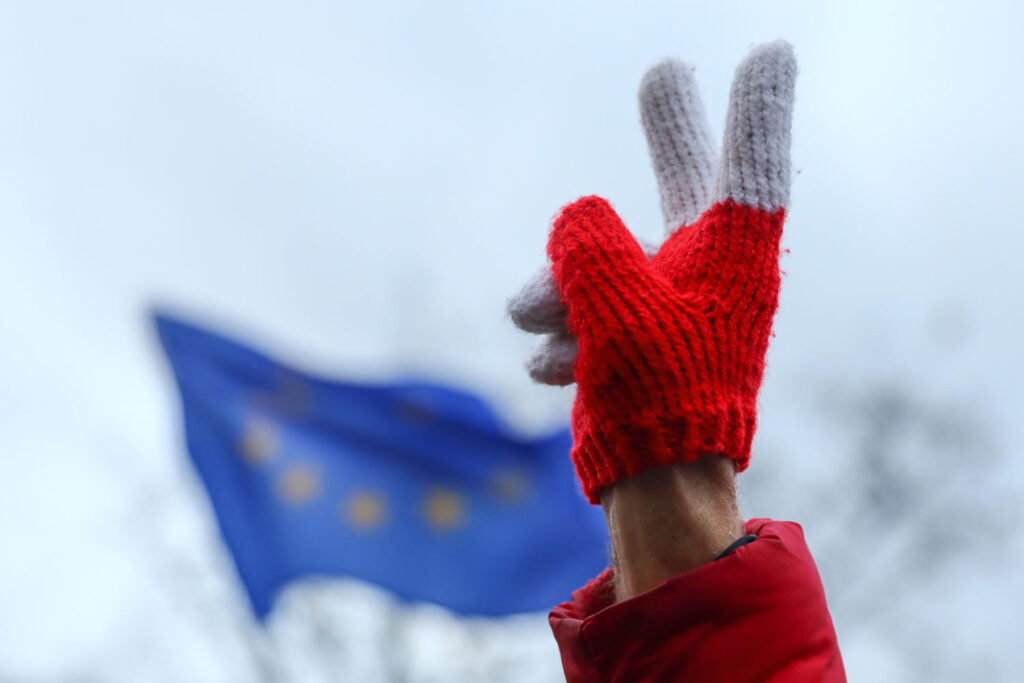
Journalists must actively defend democracy, and their weapon is the truth
By Bartosz T. Wieliński
Dear American colleagues, do not have any illusions. If an autocrat or dictator announces something, sooner or later they will act on it. When the authoritarian Law and Justice party took power in Poland in the fall of 2015, we allowed ourselves to hope that things would not be as bad as expected. But it turned out to be worse than we thought, and within months, we found ourselves fighting for survival. So, prepare for the worst.
The Polish experience shows that, to dismantle independent media, it is not necessary to arrest journalists. The state can drive media outlets to financial ruin through pressure on advertisers, flood newsrooms with frivolous lawsuits to paralyze them, and restrict journalists’ ability to gather information. On top of that, by spreading lies through social and traditional media, it can undermine their credibility. Such was our battle against Goliath that we waged in Poland for eight years — and we won.
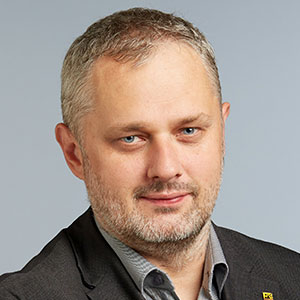
What would I advise my American friends? First, build communities around your newspapers, radio and TV stations, or online platforms. The people who read or listen to you — and often pay for that — are your allies. They trust you, you matter to them, and they will stand up for you. You need to open up to them, engage with them directly, and foster a relationship. Social media posts alone are not enough.
Second, stop being neutral and detached. It may be comfortable for a journalist to sit on the sidelines, aiming for objectivity by saying, “This side claims this, but that side claims that.” However, this approach does not work when an authoritarian government strikes at the foundations of democracy. Journalists must actively defend democracy, and their weapon is the truth.
Third, be clear and straightforward. In difficult times, you need to speak plainly. Call things as they are — label a liar a liar, not a “speaker of untruths”; call a bad law bad, not merely “controversial.” Stay focused on what matters. Internet traffic experts will tell you that you are publishing too many grim stories and urge you to mix in lifestyle or relationship content. They will suggest focusing on young readers or listeners, emphasizing that they are less interested in hard politics. They will say a pop star on the cover will sell better than a serious politician. Do not let them set the agenda. It is true, you cannot live by politics alone, but politics — hard and brutal as they may be — will decide your future.
Protect your journalists. They are your most valuable resource. Shield them from accountants who may call for layoffs in a crisis and from government-fueled troll farms. Support their psychological well-being, respond decisively when they receive threats, and pursue legal action against those who harass them, even if they are influential figures.
Do not be afraid to ask for support. Those in power will accuse you of being traitors for bad-mouthing your country to outsiders. But the solidarity of journalists in the democratic world is powerful. It was easier for the editors of Gazeta Wyborcza to stand up to an authoritarian government knowing we had the support of friends abroad. Now, we are here to support you.
Bartosz T. Wieliński is the deputy editor in chief of Polish daily Gazeta Wyborcza.
Ecuador
Now more than ever, strength lies in unity
By Mónica Almeida
Even in my worst nightmare, I could not have imagined having to write this kind of advice to my U.S. colleagues. My only hope is that Ecuador’s painful experience will help you face an uncertain future.
Almost immediately upon taking power in 2007, President Rafael Correa and his so-called Citizen Revolution started to accuse journalists of being crooked, unpatriotic, and “ink hitmen.” Ecuador’s constitution was dismantled and a new one created, paving the way for a Communication Act with countless restrictions on our profession. We even had our own modern inquisitor, like in medieval times — the Superintendent of Communication — who could impose sanctions and fines without judicial oversight, a system similar to the regulations passed by Viktor Orbán’s party in Hungary.

Correa also sued the country’s largest newspaper, El Universo, for libel, demanding $80 million in damages and calling for prison terms for the three owners and the opinion editor. The courts granted Correa $40 million and the prison sentences, but after international pressure, the owners and editor were pardoned and did not have to pay or serve time. Although Correa’s presidency ended in 2017 — and he can’t return to the country because of a bribery-related conviction — his party remains powerful.
Based on our experience in Ecuador, I’d like to offer a few suggestions for helping to protect journalism and journalists:
1. Know your rights: Understand America’s Constitution and legal protections regarding freedom of speech and freedom of the press, as well as libel and slander laws. Refresh your knowledge of international protections, such as the Inter-American Commission on Human Rights.
2. Find your pack: Now more than ever, strength lies in unity. Seek out committees or journalist associations committed to defending the profession and join them without delay.
3. Seek allies: Look beyond journalism and media for allies. Civil society is prepared to join the fight, so find common ground and unite.
4. Recognize the authoritarian playbook: Authoritarianism uses legal changes to create more rules and requirements for journalists and media companies to follow and uses them to curtail press freedom.
5. Control the narrative: Journalists serve the public, not the powerful or any political party. Do not let them tell all those lies about journalism.
6. Stay professional under provocation: Reporters should not step into the ring to spar with politicians. Remain calm, do your best work, and avoid provocations or insults.
7. Safeguard against surveillance: Journalists are often targeted with stigmatization, insults, and increased surveillance. It’s essential to take security precautions.
8. Remember Nixon v. The Washington Post: What if the president does not want to allow you in the White House or at a press conference? How will you react if this happens to you or your colleagues? What if a journalist receives threats because of a story about to be published? Keep in mind that these attacks are not always against individual reporters, but sometimes against media companies — and not always obvious. For example, allies of President Richard Nixon tried to buy up shares and take away television licenses of stations owned by The Washington Post when the paper was at the height of its Watergate coverage.
9. Every day is a battle: The fight for freedom of speech and democracy is ongoing. Take care of yourself, find time to have fun and rest, but never give up. We, all humankind, deserve better.
Mónica Almeida, NF ’09, is an independent journalist and writer who spent most of her career at El Universo newspaper in Quito.
Turkey
You must be vigilant and ready to raise your voice at every turn
By Gülsin Harman
It is difficult to pinpoint the exact moment when press freedom in Turkey began to erode. Maybe it was the first in a series of seemingly legitimate media acquisitions that culminated in an expansive monopoly. Or when a reporter, fearing retaliation, tilted toward self-censorship, or a prominent columnist was forced into exile, or an editor-in-chief bowed to pressure from a newspaper owner seeking lucrative government contracts. In reality, it feels like it was a series of gradual steps that culminated in Turkey becoming the top jailer of journalists in the world in 2016, according to the Committee to Protect Journalists. Things have only slightly improved since then, with Turkey now ranked 158th out of 180 countries in the World Press Freedom Index.
It is this kind of death-by-a-thousand-cuts of press freedom that I would advise my American journalist colleagues to watch out for. Be cognizant of the slow-burning nature of this destruction; don’t just look for big dramatic actions. You must be vigilant and ready to raise your voice at every turn. At every disparaging remark at a political rally, at each viral video mocking the work of journalists, at any incremental changes in the ownership structure of media — because these slow drips of denigration can amount to a flood that drowns a free press.

Turkey’s strongman, President Recep Tayyip Erdogan — who has held onto power for more than two decades — has been astutely aware and wary of the media’s power since he took office. His government has never lost sight of taking constant, if gradual, steps to dismantle guardrails and erode the institutions tasked with safeguarding media pluralism and press freedom.
Early on in his rule, as his government applied increasing pressure on journalists in the name of his own definition of the public interest, some among us wondered if it could get any worse, given the sheer force of the attacks on the very essence of our profession. Well, it got worse.
Engage with your audiences in as many ways as you can, as earning and maintaining their trust is now more crucial than ever
For more than a decade, a perfect storm has been brewing of tangled business interests, weaponization of the judiciary — including prison sentences for journalists — sweeping anti-media legislation, and a campaign of sowing public distrust of the press. This has paved the way for the current landscape of staunchly pro-government media organizations, while independent outlets fight an uphill battle to stay viable.
To our American colleagues I would also say: adopt radical transparency with readers. I regret that in Turkey we could not convince our audiences to ferociously support us when the threats started to mount. In Turkey, we have not been very successful in persuading the public that the very reason for our existence is to serve them.
So, explain to people how you work, and the steps and thought processes behind your journalism. Engage with your audiences in as many ways as you can, as earning and maintaining their trust is now more crucial than ever.
Gülsin Harman, NF ’20, is a frequent contributor to The New York Times and an editorial strategy consultant for alternative news organizations in Turkey.
Zimbabwe
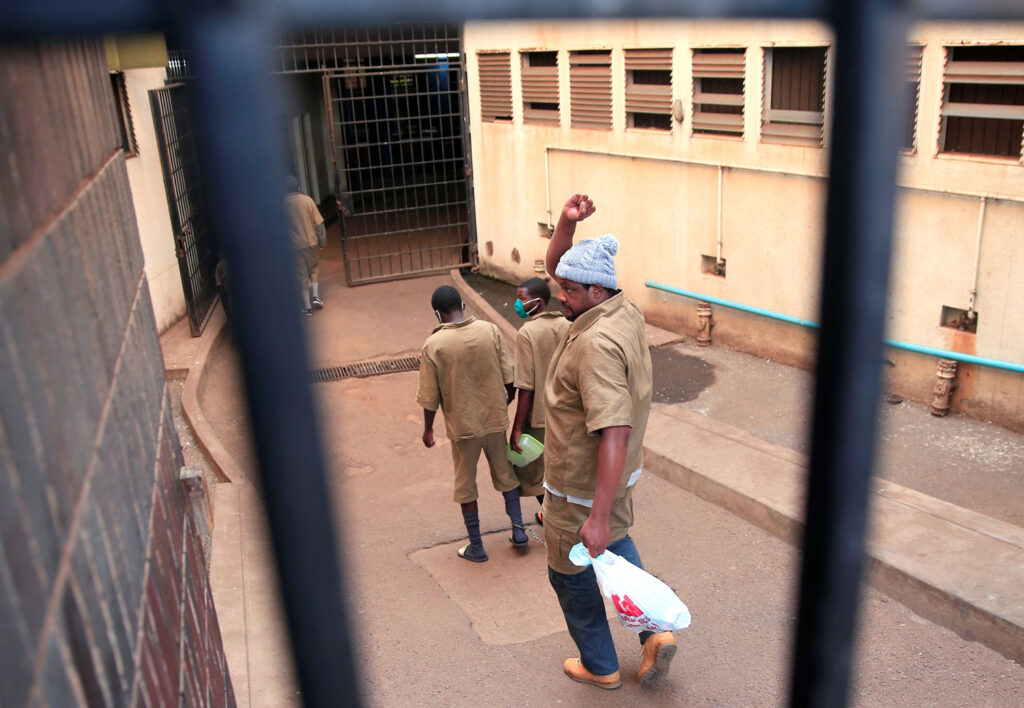
Journalism was made for the kind of times that America is facing
By Hopewell Rugoho-Chin’ono
As someone who lives in Africa, the notion of a president who refuses to acknowledge an election loss — as Donald Trump did in 2020 — is a recurring nightmare across my continent. It points to someone who doesn’t respect the constitution, and is a story that we have lived with for decades.
Despite Trump’s seemingly disqualifying behavior, he is about to be back in power again, and we must learn to live with this new reality instead of pretending we can ignore it. We cannot, and we should not. When an American president goes rogue, abusing human and civil rights such as freedom of the press, it reverberates across the world. It is not surprising that many autocrats celebrated the election of Trump as the next American president — they did so in large part because the things he says about the press mirror what they say and do against the media in their own countries.
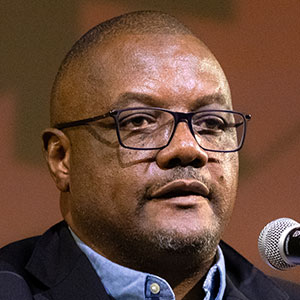
I can understand why American journalists might feel despondent. But they should not. Journalism was made for the kind of times that America is facing: a world where attacks on truth and expertise play out alongside actions such as Trump supporters intimidating college presidents and trying to stifle campus free speech.
This new reality of a media-bashing president needs a robust response from American journalists. They must hold the line and help the world distinguish the truth from the falsehoods in reporting on their country.
Characters like Trump love people who give up — they love quitters — because a lack of opposition allows them free rein to implement their often unconstitutional desires.
I have been jailed three times in my native Zimbabwe for exposing corruption deals involving Zimbabwean President Emmerson Mnangagwa, but I came out of the ordeal stronger, and determined to do my work despite political persecution meant to stop me.
I doubt that Trump will go to the extent of jailing American journalists; the U.S. has solid, constitutionally backed institutions that will protect the media’s right to work, unlike in countries such as Zimbabwe. Most African journalists I have spoken with about the American election result are placing their hopes on freedom of speech and press prevailing.
An America led by a president who repeats baseless attacks on the media and uses authoritarian tactics against reporters would be a disaster for journalists everywhere. Because America has long been the global leader in media freedom — and it must hold the line for us all.
Stay strong, colleagues — we need you to be strong.
Hopewell Rugoho-Chin’ono, NF ’10, is a journalist and documentary film director.
